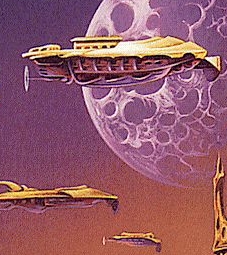
In classic Sword & Sorcery magic tends also the be not in the hands of the main character and more oft tends to be the purview of the villains and that odd seer who crops up in these things. Another factor tends to be that the protagonist tends to be a native to that world and age. Sword and Sorcery pretty much tells you the difference right out the gate. Though sometimes it was had to tell if some power was supernatural or just super-science. Thundaar is another I have in this vein, (the book, not the cartoon series). John Carter of Mars and Carson of Venus are pretty much exemplars of this.

In Sword and Planet stories magic tends to be either non-existent, or covered by super-science and the occasional mind power. Quote from: hedgehobbit 1124765 Sword-and-planet predates sword-and-sorcery by about 25 years and S&P was fading as a genre when S&S started getting more popular. Sword and Sorcery: A savage man in a civilized world Sword and Planet: A civilized man in a savage world Obviously there's overlap in these themes such as Brackett's S&P classic Black Amazon of Mars being closer to S&S thematically with the outsider hero Eric John Stark, but this book was written very late in the timeless of S&P (40 years, and two atomic bombs, after Princess of Mars)Īlso, although sword-and-planet generally involves an actual planet, the themes and style of these stories are nearly identical to other earth-bound types of adventure fiction simply replace the savage planet with the jungles of Tarzan, or the hollow world of Pellucidar, or even the feral Europe of The Lost Continent. These generally reflect a differing view of modern society does civilization make men smarter and more skilled, or does it make men weak, soft, and corrupt. S&S, OTOH, has protagonists that are initially uncivilized, whether it's the barbarians Conan and Fafred, the street urchin outsider Grey Mouser, or a man, such as Elric, who rejects the restrictions of civilization. Early S&P fiction usually involved a "modern" man traveling to a more savage planet, whether it was John Carter going to Mars or Flash Gordon's trip to Mongo.

While the obvious difference is the presence or lack of magic, they differed in theme as well. Sword-and-planet predates sword-and-sorcery by about 25 years and S&P was fading as a genre when S&S started getting more popular. Lower lethality systems might only need a one-time event with a few "spares" (a mad-scientist's transmat beam malfunctions, astronaut shot through a wormhole, etc.). alien abductions are real and this planet takes humans for use in their gladiatorial games (the PCs either escaping or winning their freedom or what have you). the 4E version of Gamma World or Mutants & Masterminds) then you probably need to establish a fairly common means of replacing the humans.
#8th ray barsoom Pc
If PC deaths are expected to be common (ex. It also suggests that one of the things a GM could do in setting up a S&P campaign would be to have the players start out by creating average-to-exceptional humans before transporting them to the alien world. Which, semi-ironically, actually puts the D&D cartoon more in the genre of S&P rather than S&S. Typically they are an average-to-exceptional human from Earth thrust into an alien world where much of the story revolves around their finding a place in that world (i.e. One fairly common element of Sword & Planet not found in Sword & Sorcery settings is that their viewpoint characters are rarely FROM the planet in question.


 0 kommentar(er)
0 kommentar(er)
